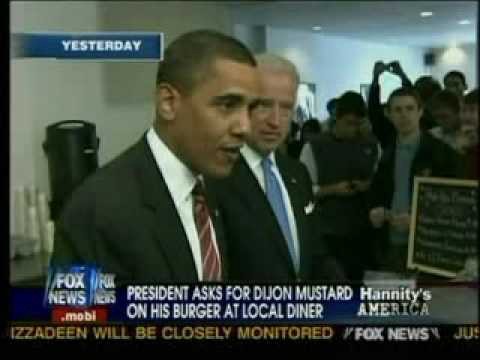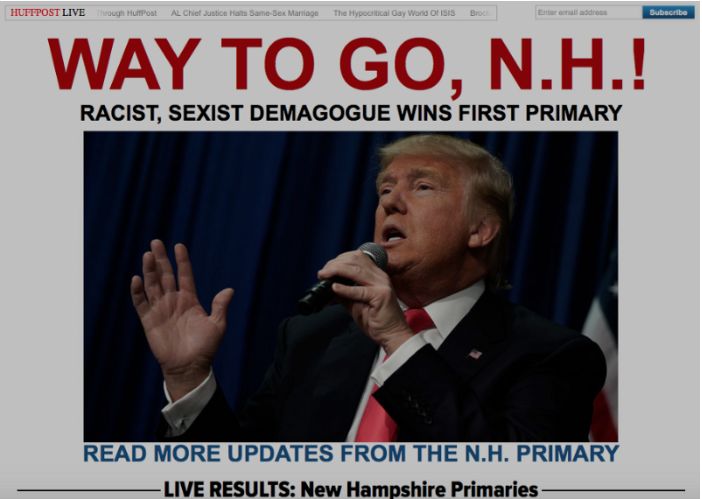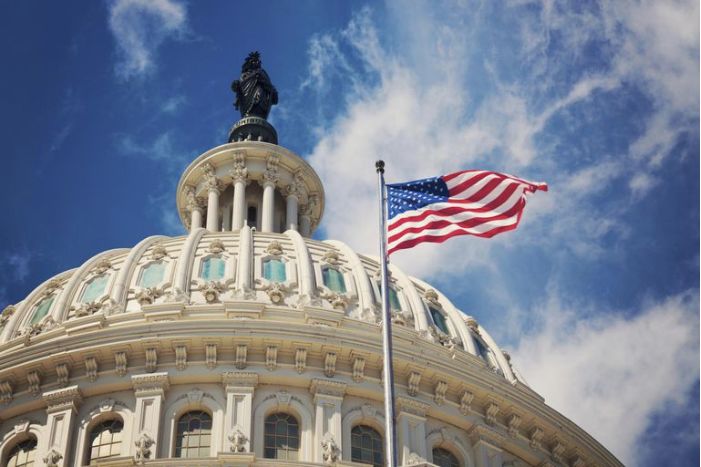Can We Shut Down the Two-Party System?

Update: The Senate voted Monday to reopen the government, and extend funding until February 8, setting up yet another potential shutdown fight.
The recent government shutdown is only the latest manifestation of the partisan logjam gripping America, and sure not to be the last. All the political rhetoric over the past few years — ever since the rise of the Tea Party and the subsequent focus on emotions over results — has been driving us to this point, and it was obvious.
Sadly, it may have also been unavoidable.
The Republicans blame the Democrats for the government shutdown, and the Democrats blame the Republicans. After all, it’s become instinctual to shirk personal responsibility and project blame on someone else, to look anywhere but inward.
As usual, the Republicans and the Democrats are half-right. The Republicans and the Democrats bear some responsibility for the shutdown.
In the aftermath of President Obama’s sweeping 2008 election, it became especially clear to Republicans that inflammatory, outrageous (and nearly always false, or at least exaggerated) statements worked. They motivated voters, and jammed the entire political system with a Republican Congress dedicated to spiting Barack Obama.
Remember the great Dijon mustard controversy of 2009? Yeah, I try not to.Republicans leapt at the opportunity to hype up the next Obama non-scandal, and their attacks grew increasingly detached from reality. There were (and perhaps still are) tens of thousands of Americans who genuinely believe President Obama is the antichrist, and/or a secret Muslim.
I understand why the Democrats, in turn, began characterizing nearly every Republican voter as a racist. It was an insulting oversimplification that climaxed in a campaign ad in the 2017 Virginia governor’s election.
But just as Mitt Romney’s infamous 47% remark was exaggerated to make him seem unfeeling and out-of-touch, Hillary Clinton’s “basket of deplorables” comment was intentionally magnified and somewhat mischaracterized to hurt her campaign.
I get it. Really, I do. Attack ads get people to vote, or sometimes they depress the opposition’s turnout, and we have to be pragmatic with our politics. For many of the interests on both sides, the laws that get enacted are the start and end of their motivation. Everything else is secondary. Machiavelli knew what he was talking about.
But that scorch-and-burn strategy, while it may win you a battle here and there, does not leave a civil, productive landscape to exist on after the war.
When Democrats earnestly call the opposition fascists, they’ve essentially made compromise impossible.
Republicans won’t compromise out of spite, and Democrats can’t compromise because it would be seen as cooperating with fascists. And you can’t take back anything you say in Washington, or you’ll be branded a flip-flopper (but you probably will anyway, because politics).
It certainly doesn’t help that the media, in the evolving online business models that drive competition for clicks, shares, and catchy headlines, have aggravated the political discourse.
Not seen here: impartial news reporting elevating our dialogueHow do you work with the opposing party when they encourage headlines like that?
The short answer is: you don’t.
I’d like to think we can move beyond that kind of language, but there’s no evidence that we’re moving in that direction. Both sides are sharpening their rhetorical swords, and our current president is unrestrained, unfiltered, and ungoverned by all norms or conventions.
The 2018 midterms, even many primary races, are getting vicious, undignified, and extreme, drawing candidates like Joe Arpaio. Expect Democrats to run to the left, and Republicans to run to the right. Neither side will find salvation in the extremes.
Centrism and compromise were once hailed as virtues. Now they’re cast down like antique relics, from the hands of bitter cynics.
I expect this shutdown to last for a while, although I’d be happy to be proven wrong. Our political actors have moved too far, and too much is on the line now for either side to back down respectably.
It doesn’t help that the people in power are comfortable enough in their positions, backed with party money and handshakes and empty endorsements, and will mostly coast to re-elections across the country.
We may live in the United States of America, but it’s never felt so divided.If we could shift the balance of power away from Republicans and Democrats, and move to a system of independents, checked not by party elders but by their own constituents, we could move beyond reductive, infantile politics toward real compromise and meaningful change.
No longer could parties make ignorant, sweeping claims about politicians, because there would be no label to unite them under. We would have to deal with their ideas on their own merits, and develop an honest appreciation for nuance.
Politics was never easy, and it was never supposed to be. Building a consensus among a deeply divided population is hard work, but the shortcuts taken by the party system have not done us any favors in the long-term. We owe it to ourselves to challenge ourselves, to grow, and to strive, as it was once said, to form a more perfect union.
Photo Credit: JPL Designs / Shutterstock.com








